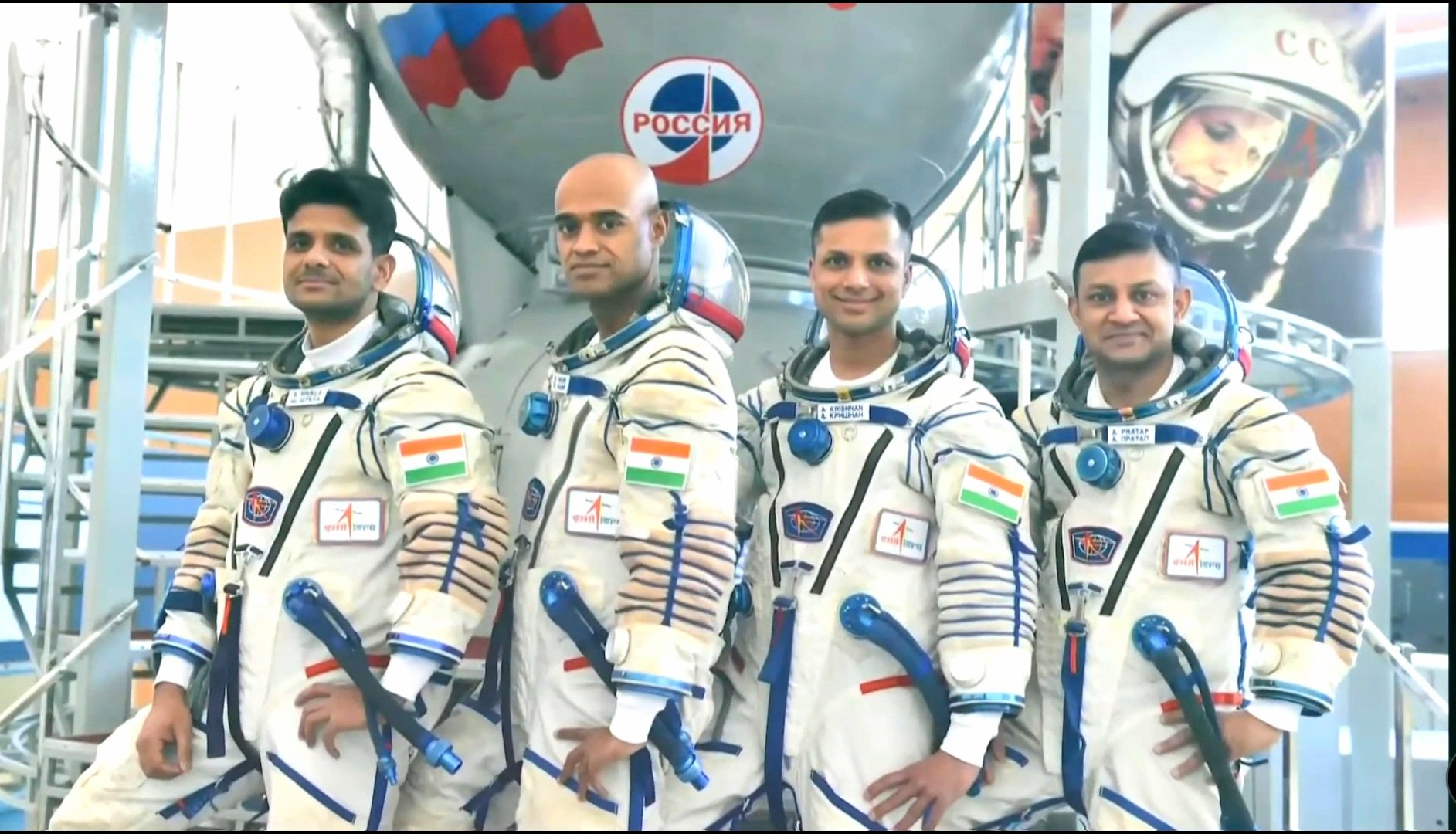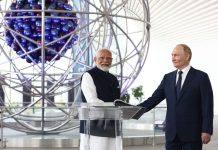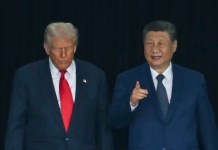Indian Air Force fighter pilot and now Astronaut Shubhanshu Shukla is set to blast into space next week. He will become the first Indian to visit the International Space Station (ISS).
An Indian air force fighter pilot, 39-year-old Shukla, is joining a four-crew mission launching from the United States with private company Axiom Space, aboard a SpaceX Crew Dragon capsule.
He will become the first Indian to join the ISS, and only the second ever in orbit — an achievement that the world’s most populous nation hopes will be a stepping stone for its own human flight.
“I truly believe that even though, as an individual, I am travelling to space, this is the journey of 1.4 billion people,” Shukla was quoted as saying by The Hindu newspaper this year.
Shukla said he hopes to “ignite the curiosity of an entire generation in my country” and “drive the innovation that will make many such projects possible for us in the future”.
The Air Force group captain will pilot the commercial mission slated to launch June 10 from the Kennedy Space Center in Florida, a joint team between NASA and ISRO, the Indian Space Research Organisation.
India’s Department of Space calls it a “defining chapter” in its ambitions, naming Shukla as “among the top contenders” for its maiden human spaceflight mission, Gaganyaan, “sky craft” in Hindi, scheduled for launch in 2027.
“His journey is more than just a flight — it’s a signal that India is stepping boldly into a new era of space exploration,” the Department of Space said ahead of the launch.
New Delhi has paid more than $60 million for the mission, according to Indian media reports. Prime Minister Narendra Modi has announced plans to send a man to the Moon by 2040.
Ominous Signs For Taiwan & Japan! Why South Korea’s New President Is Good News For China & Russia
India’s ISRO said in May that it planned to launch an uncrewed orbital mission later this year, before its first human spaceflight in early 2027.
Shukla’s voyage comes four decades after Indian astronaut Rakesh Sharma joined a Russian Soyuz spacecraft in 1984.
“What sets Shukla’s mission apart is its strategic importance,” the department added.
“Unlike the symbolic undertones of India’s first human spaceflight, this time the focus is on operational readiness and global integration.”
Shukla also trained in Russia, in 2020, along with three other astronaut hopefuls, at the Yuri Gagarin Cosmonaut Training Center — before further training at ISRO’s centre in the southern city of Bengaluru.
He has said the journey aboard the Axiom Mission 4 — and then the expected 14 days on the ISS — will provide “invaluable” lessons to bring back home.
Shukla joined the Indian Air Force as a fighter pilot on June 17, 2006, after clearing the NDA exam. Over nearly two decades, he has logged over 2,000 flying hours on several frontline aircraft, including the Sukhoi-30 MKI, MiG-21, MiG-29, Jaguar, Hawk, Dornier, and An-32, according to reports.

Shukla will be led by mission commander Peggy Whitson, a former NASA astronaut, and joined by European Space Agency project astronaut Slawosz Uznanski-Wisniewski of Poland, and Tibor Kapu of Hungary.
The son of a government ministry official from Lucknow in the northern state of Uttar Pradesh, Shukla is a veteran fighter pilot with experience flying Russian Sukhoi and MiG jets.
He has promised to perform yoga poses in the International Space Station (ISS).
If he is unable to fly on Tuesday, fellow Air Force pilot Group Captain Prasanth Balakrishnan Nair, 48, is expected to take his place.
India has flexed its ambitions over the last decade, with its space programme growing considerably in size and momentum, matching the achievements of established powers at a significantly lower price tag.
In August 2023, it became just the fourth nation to land an unmanned craft on the Moon after Russia, the United States, and China.
Waiting at home will be Shukla’s family, including his wife and son.
“I’ve been having goosebumps by just thinking that soon my brother will be in space,” his older sister Suchi, a school teacher, told the Times of India newspaper.
© Agence France-Presse




